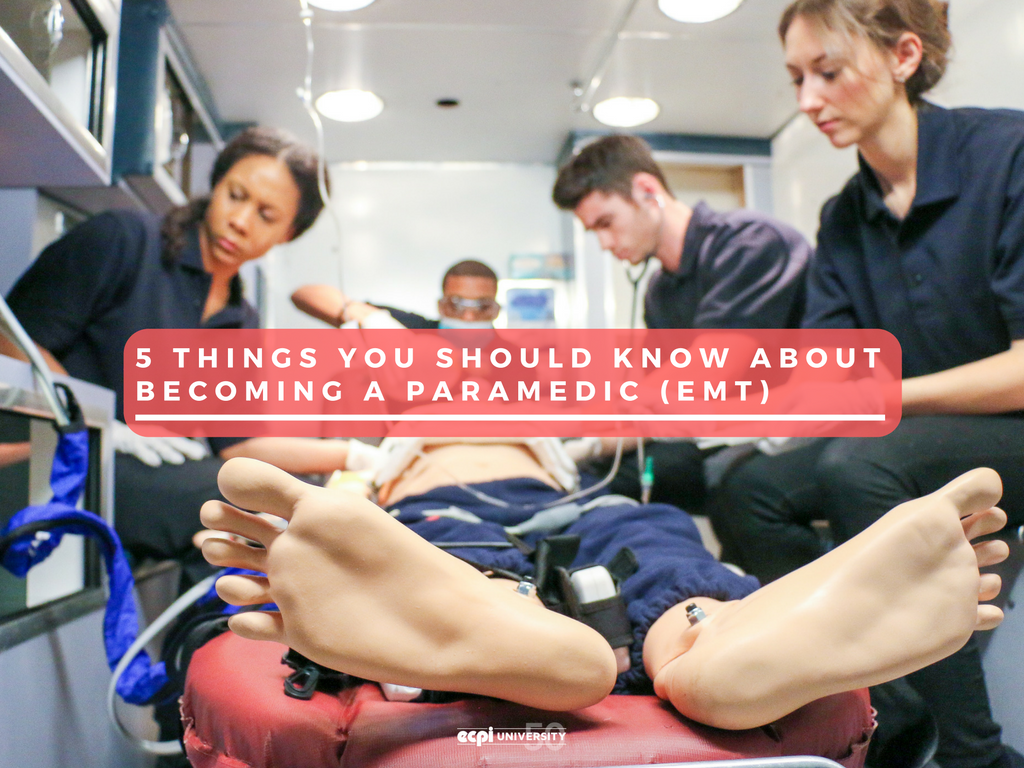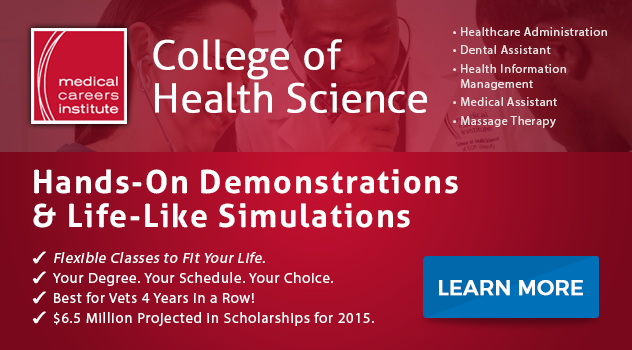5 things You need to Know About Becoming a Paramedic (EMT)
So, you’re thinking about becoming a Paramedic? That’s certainly a noble goal. Paramedics and EMTs save lives every day. Before you take the next step, there are five things you should know if you want to be a Paramedic (EMT):
5. What Paramedics Do
Paramedics care for the sick or injured in emergency medical settings. People’s lives often depend on the quick reaction and competent care they provide. Typically, paramedics respond to 911 calls and deliver a wide range of care that includes medical assessments, first aid, life support, and transportation to the nearest medical facility.
4. Nature of the Work
To be a paramedic, you’ve got to be cool under pressure. Paramedics are called to an array of high-stress situations involving such things as car accidents, heart attacks, gunshot wounds, childbirth, and more. Oftentimes, seconds count. So, having the ability to think and act decisively can be the difference between life and death.
Paramedics often use special equipment such as defibrillators, EKG machines, and backboards to immobilize patients before putting them on stretchers and transporting them to a medical facility. They usually work in teams, with one EMT or paramedic driving while the other monitors the patient’s vital signs and provides additional care as needed.
3. Education
In Virginia, most Paramedic (EMT) programs can take between 27 and 30 months, but ECPI University’s accelerated, year-round program allows you to earn an Associate of Applied Science in Emergency Medical Services (EMS) in as little as 16 months. If you’re already and EMT, you can finish in just 12 months.
2. Certification
One you’ve graduated, you still have to become certified. That means successfully passing the National Registry of Emergency Medical Technicians (NREMT) Paramedic exam which is composed of two parts: cognitive and psychomotor.
The cognitive portion of the exam includes 80 and 150 items, covering the entire spectrum of EMS care, including airway, respiration, ventilation, cardiology, resuscitation, trauma, medical and obstetrics/gynecology, and EMS Operations. Items related to patient care are focused on adult and geriatric patients (85 percent) and pediatric patients (15 percent).
During the psychomotor portion of the exam, the candidate must demonstrate 12 specific skills in a scenario-type format to validate their abilities to function in the out-of-hospital setting.
William Payne so proud of you! Congrats on your ECPI graduation! #ECPIGrad
— joann mertz (@joannmertz) June 17, 2016
1. Speed to Degree
If this sounds like the field you’ve been looking for, great news! At ECPI University you could earn an accelerated Paramedic degree and be that much closer to licensure and saving lives! Consider getting in contact with an admission’s advisor at ECPI University’s Newport News campus. It could be the first step toward a rewarding future for yourself and lifesaving care for the people you could save.
It could be the Best Decision You Ever Make!
DISCLAIMER – ECPI University makes no claim, warranty, or guarantee as to actual employability or earning potential to current, past or future students or graduates of any educational program we offer. The ECPI University website is published for informational purposes only. Every effort is made to ensure the accuracy of information contained on the ECPI.edu domain; however, no warranty of accuracy is made. No contractual rights, either expressed or implied, are created by its content.
For more information about ECPI University or any of our programs click here: http://www.ecpi.edu/ or http://ow.ly/Ca1ya.




